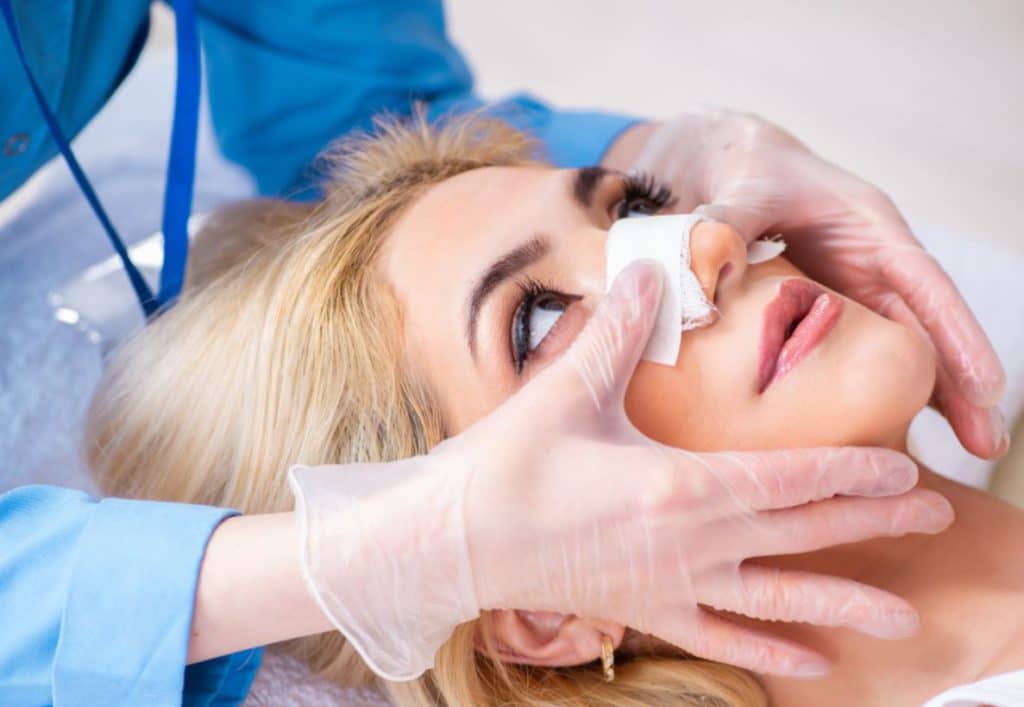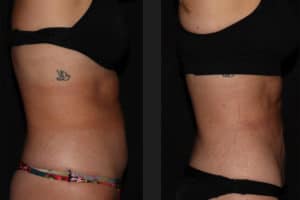Rhinoplasty is a cosmetic surgery procedure that can be performed to improve the appearance of your nose. It involves reshaping and improving the size, shape, and structure of the nose. The goal of this surgery is to make the nose appear more balanced in terms of its width and length. This will also help to reduce the nasal bridge, which is the area between the eyes and nose. In some cases, the surgeon may choose to remove or add bone along with cartilage for better results. If you are looking for Rhinoplasty in Miami you can contact us at this link.
How bad does rhinoplasty hurt?
After understanding what is involved during rhinoplasty, this is usually the first question our clients ask. We’re happy to say that rhinoplasty is not typically very painful. Instead of pain, most clients experience mild discomfort or tenderness due to the swelling and bruising that will occur.
Your surgeon will have recommendations for pain management prior to your surgery. You will also be prescribed pain medication in case you feel you need it, although many clients do not require it. Over-the-counter pain medications are sufficient to help with any discomfort.
Other than the swelling and bruising, the main issue is usually some nasal congestion. Your surgeon may recommend that you sleep with your head elevated for the first several days following your surgery. This will help you breathe easier, and you should be breathing through your nose normally after the first week.
One other minor side effect of rhinoplasty is a dry throat and chapped lips. This is due to the need to breathe through your mouth during the initial recovery phase. We recommend using a small humidifier in your rest area. This will help soothe both your throat and your nasal passages. You may consider having tea and lip balm on hand as well. It’s important to stay hydrated during recovery.
The more rest you give yourself, the quicker your recovery time is. Follow your surgeon’s orders, and don’t cut your rest and recovery time short.
Does liquid rhinoplasty hurt?
Liquid rhinoplasty is also called non-surgical rhinoplasty. It is performed by injecting a filler agent, usually hyaluronic acid, under the skin to temporarily change the shape and structure of your nose. Liquid rhinoplasty is an outpatient procedure and can take just 15 minutes or less to perform. Some clients are able to return to work the same day.
So, does liquid rhinoplasty hurt?
Before the filler agent is injected, your surgeon will place a topical anesthetic so that any pain from the needle will be mild. While the filler is being injected, you may feel some pressure or pinching, but you should not feel pain.
Pain after the procedure is rare. Most clients see some redness and sensitivity where the injection was given, but this should dissipate one or two days after the procedure. In some uncommon cases, clients will have mild bruising and swelling.
Does removing stitches after rhinoplasty hurt?
While the area may still be tender when it’s time to remove your stitches, the removal process is painless. Your surgeon will be very gentle during the procedure, and removing the stitches will take just a few short minutes. Let your surgeon know if you are experiencing anything but mild tenderness when you go to have your stitches removed.
Do they break your nose during rhinoplasty?
Your nose is not broken during rhinoplasty. The bones in the nose may be smoothed, cut, and reset but never broken. The exact technique used will depend on what sort of shaping is desired. For instance, if rhinoplasty is being performed to modify the tip of your nose, it’s often just the cartilage that is removed or reshaped.
In more dramatic modifications, the bones may need to be cut and shifted into a more desirable position. This could be the case when smoothing a nasal hump or straightening a crooked nose. When the bones of the nose need to be cut in order to make the modifications, this is called an osteotomy.
If you are ready to discuss rhinoplasty, our team and surgeons are here to answer all of your questions. Schedule a consultation with one of our professionals and let us know what you’d like to change. We’ll discuss outcomes, treatment, and post-surgical care to make sure you are prepared for surgery.





